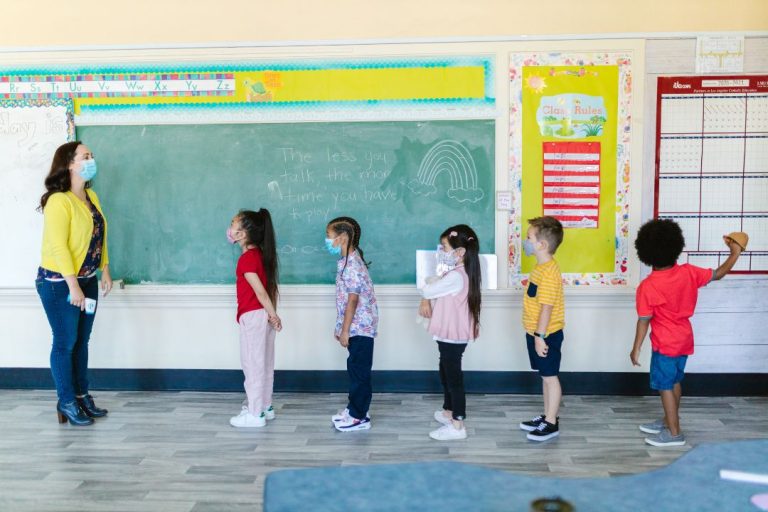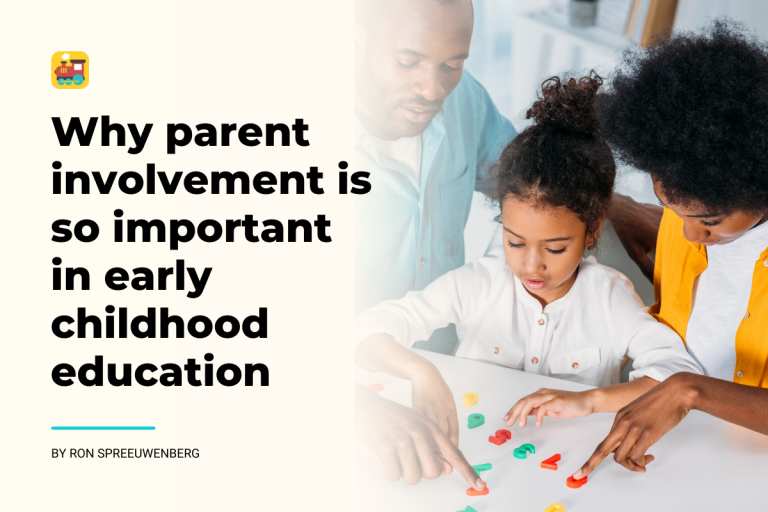What Statements Best Describe the Advances in Pragmatics in Early Childhood

Advances in pragmatics in early childhood can be described as the development of communication skills, including language acquisition, social interaction, and understanding of non-verbal cues. These advances involve the ability to engage in conversational turn-taking, interpret and express emotions, and comprehend the meaning and intent behind different types of communication.
Pragmatics in early childhood has seen significant progress, encompassing the acquisition of language, social interaction, and interpretation of non-verbal cues. Children develop skills such as conversational turn-taking, emotional expression, and understanding the meaning and intent of various forms of communication.
This progress is instrumental in shaping their ability to effectively communicate and interact with others, laying a foundation for their future social and academic success. Understanding the significant strides made in early childhood pragmatics provides valuable insights into the cognitive and social development of young children.
Advances In Pragmatics During Early Childhood
Historical Perspective On Language Development
The study of language development in children has made significant strides over the years. Historically, early pragmatics research focused on understanding how children acquire and use language in social contexts. Researchers aimed to uncover the developmental milestones and patterns that shape children’s pragmatic skills, paving the way for a deeper understanding of language acquisition.
Key Milestones In Early Pragmatics Research
Early pragmatics research has identified key milestones in the development of children’s communicative abilities. These milestones include the emergence of joint attention, turn-taking in conversation, understanding of conversational rules, and the use of nonverbal communication cues. These milestones provide valuable insights into the natural progression of children’s pragmatic skills, helping researchers and educators promote healthy language development in early childhood.
Significance Of Pragmatics In Cognitive Development
Understanding and mastering pragmatics in early childhood hold immense significance for cognitive development. Pragmatic competence enables children to navigate social interactions, understand others’ perspectives, and express their own thoughts and feelings effectively. Moreover, the acquisition of pragmatic skills fosters the development of critical thinking, problem-solving abilities, and emotional intelligence in young learners. Thus, pragmatics plays a pivotal role in shaping children’s cognitive development and enriching their overall communicative competence.
Exploring Language Development Trends
Language development in early childhood has seen remarkable advances in pragmatics, the study of language use in context. Understanding these developments is crucial for educators, parents, and researchers to support children’s language skills effectively. Let’s delve into the recent trends that are shaping our understanding of pragmatics and language development in early childhood.
Shifts In Linguistic Theories
Traditional linguistic theories viewed language development as a result of innate structures and cognitive processes. However, recent advances in pragmatics have highlighted the importance of social interaction in shaping language use and acquisition. Pragmatics now emphasizes the role of context, intention, and shared understanding in communication, reflecting a shift towards more interaction-based theories of language development.
Role Of Technology In Observing Language Use
Advancements in technology have revolutionized the study of language development in early childhood. Digital tools such as audio and video recordings, natural language processing software, and eye-tracking devices enable researchers to capture and analyze children’s language use in naturalistic settings. This technological integration provides a more in-depth understanding of how children interact with language in their everyday environments, shedding light on the complexities of language development beyond controlled laboratory settings.
Correlation With Neural Development
Recent research has established a strong correlation between language development in early childhood and neural development. The exploration of neurobiological processes underlying language acquisition has enriched our understanding of how children process and produce language. This integration of neuroscientific findings with pragmatic studies offers valuable insights into the cognitive mechanisms that underpin language use in early childhood.
Defining Pragmatic Skills In Young Children
Vocabulary Growth And Social Context
In early childhood, pragmatic skills involve the development of vocabulary and understanding of social context. Vocabulary growth plays a crucial role in a child’s ability to effectively communicate and interact with others. As children expand their vocabulary, they become more adept at expressing themselves and understanding the meanings of words used by others, thus enhancing their pragmatic skills.
Understanding And Use Of Non-verbal Cues
Another significant aspect of early childhood pragmatics is the comprehension and utilization of non-verbal cues. Children learn to interpret body language, facial expressions, and gestures to grasp the meaning behind communication. By understanding non-verbal cues, they can better comprehend the emotions and intentions of others, leading to more meaningful interactions.
Turn-taking And Conversational Dynamics
Additionally, turn-taking and mastering conversational dynamics are fundamental to the development of pragmatic skills in young children. Learning when to speak, listen, and engage in a conversation helps children navigate social interactions more effectively. By internalizing these dynamics, children develop the ability to engage in meaningful exchanges and maintain the flow of communication in various social settings.
Language Development In Different Settings
Language development in early childhood occurs in various settings, each of which plays a crucial role in shaping children’s pragmatic skills. The advancement in pragmatics in early childhood is influenced by factors such as cultural variations, family interactions, and educational environments. Understanding these dynamics is essential for effectively supporting children’s language development.
Variation In Pragmatic Skills Across Cultures
Pragmatic skills in early childhood vary across different cultures, impacting the way children understand and use language. Cultural values, beliefs, and norms shape communication patterns, influencing the development of pragmatic abilities. To address this, it’s important to recognize and accommodate diverse cultural perspectives in early childhood education and intervention programs.
Impact Of Family Interaction On Language Advancement
Family interaction significantly contributes to children’s language development and pragmatic skills. The quality and quantity of conversations and interactions within the family setting play a pivotal role in shaping a child’s pragmatic competence. Empowering parents with strategies to promote effective communication and interaction can greatly enhance children’s pragmatic development at an early age.
Educational Environments And Pragmatic Development
The educational environment serves as a key context for nurturing children’s pragmatic skills. Early childhood educators play a crucial role in facilitating enriching conversational experiences and creating opportunities for language learning. By fostering collaborative interactions and inclusive communication, educational settings can contribute significantly to children’s pragmatic advancement.
Nuances Of Pragmatics In Child Language
As children go through their early years, their language skills develop and refine, with pragmatics playing a vital role in their communication abilities. Understanding the nuances of pragmatics in early childhood can shed light on the significant advances in children’s language development, shaping their interactions and social connections.
Inferencing And Its Growth In Early Years
The ability to make inferences is a crucial aspect of pragmatic language development among young children. Inferencing involves drawing conclusions and understanding implied meanings, contributing to effective communication and comprehension. As children progress through their early years, their proficiency in inferencing shows remarkable growth, enabling them to grasp subtle cues and navigate varied social situations.
The Role Of Play In Language Experimentation
Play acts as an integral platform for young children to experiment with language within a natural and interactive setting. Whether engaging in imaginative role-play or collaborative games, children have the opportunity to explore diverse linguistic expressions, develop turn-taking skills, and understand the power of words in shaping interactions. Play not only fosters language experimentation but also nurtures the application of pragmatic principles in real-time scenarios.
Narrative Skills And Storytelling Prowess
Enhancing narrative skills and storytelling prowess significantly contributes to a child’s pragmatic language development. Through storytelling, children embark on a journey of expressing thoughts, organizing events, and connecting ideas cohesively. Strengthening their narrative skills enables them to convey experiences and emotions effectively, honing their ability to engage and captivate audiences through compelling communication.
Best Descriptions Of Pragmatics Progress
Pragmatics in early childhood refers to the ability to use language effectively in social contexts. As children grow and develop, their pragmatic language skills progress significantly, paving the way for improved communication and social interaction. Understanding the best descriptions of pragmatics progress, along with the benchmarks, strategies, and challenges inherent in nurturing advanced language skills in young children, is essential for educators and parents alike.
Benchmarks For Pragmatic Language Competence
When evaluating children’s pragmatic language competence, certain benchmarks can be useful indicators of progress. These may include:
- Using appropriate greetings and farewells
- Maintaining a conversation by taking turns
- Initiating and responding to requests and questions
- Recognizing and repairing communication breakdowns
Strategies For Fostering Advanced Pragmatics
Empowering children to develop advanced pragmatics involves employing effective strategies such as:
- Modeling and explicitly teaching social language skills
- Creating opportunities for cooperative play and group activities
- Encouraging perspective-taking and empathy
- Providing structured and naturalistic language experiences
Challenges And Solutions In Nurturing Language Skills
Nurturing language skills in children may encounter challenges that require tailored solutions. Common challenges include:
- Difficulty understanding nonverbal communication cues
- Struggling to grasp conversational rules and expectations
- Experiencing difficulties with social relationships and peer interactions
Effective solutions to address these challenges could involve:
- Implementing visual supports and social stories
- Explicitly teaching and practicing conversational skills
- Facilitating structured social opportunities and peer modeling
Assessing Pragmatic Language Development
Assessing pragmatic language development in early childhood is crucial for understanding and supporting a child’s social communication skills. Advances in pragmatics have led to innovative methods for evaluating progress, recognition of the role of peer interactions in pragmatic assessment, and a deeper understanding of how bilingualism influences pragmatic abilities.
Innovative Methods For Evaluating Progress
The assessment of pragmatic language development has evolved with innovative methods that go beyond traditional standardized tests. These modern approaches focus on observing naturalistic interactions, analyzing language samples, and utilizing technology-based tools to gain a comprehensive understanding of a child’s pragmatic abilities.
Role Of Peer Interactions In Pragmatic Assessment
Peer interactions play a significant role in assessing pragmatic language development. Observing how children communicate, negotiate, and express themselves in social settings allows for a more holistic evaluation of their pragmatic skills. Peer interactions provide valuable insights into the adaptive use of language in various social contexts.
Influence Of Bilingualism On Pragmatic Abilities
Bilingualism has been found to have a nuanced impact on pragmatic abilities in early childhood. The assessment of pragmatic language development in bilingual children requires a nuanced approach that considers the influence of both languages. It is essential to recognize the unique ways in which bilingualism shapes a child’s pragmatic skills and adapt assessment methods accordingly.
Tailoring Education To Language Milestones
Understanding the advances in pragmatics in early childhood is crucial in tailoring education to language milestones. As children develop their pragmatic skills, it’s essential to make adjustments in the curriculum, provide training for teachers, and offer parental guidance and resources for language enrichment.
Curriculum Adjustments For Diverse Language Abilities
To accommodate diverse language abilities, curriculum adjustments are vital. This involves creating a learning environment that promotes language development and communication skills. Incorporating activities that encourage interaction, turn-taking, and perspective-taking, and incorporating visual aids to facilitate understanding for children with diverse language abilities are key aspects. An approach that integrates play-based learning with language development strategies is also beneficial.
Teacher Training For Supporting Pragmatic Development
Teachers play a significant role in supporting pragmatic development. Providing specialized training to teachers equips them with the knowledge and tools necessary to identify and address pragmatic challenges in early childhood. This training should include communication strategies, observation techniques, and strategies for promoting social interaction. Ensuring that teachers are well-prepared to recognize and support the diverse language abilities of their students is essential.
Parental Guidance And Resources For Language Enrichment
Parental involvement is crucial in language enrichment. Offering parents guidance and resources to support their child’s language development and pragmatic skills is essential. This could involve providing information on age-appropriate language activities, encouraging meaningful conversations, and providing access to educational materials that foster language development at home.
Frequently Asked Questions On What Statements Best Describe The Advances In Pragmatics In Early Childhood
What Is The Importance Of Understanding Pragmatics In Early Childhood Development?
Understanding pragmatics in early childhood helps in developing effective communication skills, social interactions, and cognitive abilities. It lays the foundation for language development and helps children navigate various social situations.
How Do Advances In Pragmatics Benefit Early Childhood Education?
Advances in pragmatics enhance early childhood education by promoting effective communication, problem-solving, and social interaction skills. It contributes to improved language development, empathy, and understanding of others’ perspectives.
What Are Some Key Examples Of Advances In Pragmatics In Early Childhood Research?
Research on advances in pragmatics in early childhood has highlighted the role of storytelling, role-playing, and interactive language activities. It emphasizes the importance of considering cultural and environmental influences on pragmatic development.
Conclusion
The advances in pragmatics in early childhood demonstrate the importance of understanding language development in children. By recognizing the nuances of communication and social interaction, we can better support their linguistic growth. These advancements pave the way for improved educational interventions and early intervention strategies, ultimately benefiting children’s overall development.

With over 20 years of experience in early childhood education, Jane brings a wealth of knowledge to Classroom Journey. She specializes in play-based learning and has a passion for inclusive education.






